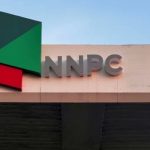Despite the Nigerian National Petroleum Company Limited (NNPCL) remitting N907 billion to the Federal Account Allocation Committee (FAAC), the balance in the Excess Crude Account (ECA) has remained stagnant at about $474 million for the past two years. This revelation comes at a time when international crude oil prices are surging, raising concerns among energy experts.
The FAAC meeting for July 2023, chaired by the Accountant General of the Federation, Dr. Oluwatoyin Madein, revealed that the balance in the ECA was $473,754 as of June 2023, the same amount reported in December 2022. Despite the remittance of N907.054 billion into the FAAC purse, the ECA’s growth has remained stagnant, which energy expert Bala Zaka described as “very dangerous and negative.”
The Excess Crude Account was established to save surplus funds generated when the country sold crude oil above the approved budget benchmark. However, in recent years, the account has experienced a significant decline, shrinking by 89% from $4.1 billion in November 2014 to $472,513 in the same period of 2022.
Economists attribute the stagnation and depletion of the ECA to the lack of government discipline and mismanagement of funds. The Governors’ Forum’s opposition to the account has also played a role, with some claiming it should be accessible to states rather than solely controlled by the federal government.
Meanwhile, Nigeria’s crude oil benchmark for 2023 is set at $75 per barrel, but international Brent crude reached as high as $82 per barrel recently before settling at $80 per barrel. The nation’s crude grade, Bonny Light, which is favored by international refiners, often sells at a premium of over $1 above dated Brent.
NNPCL Chief Financial Officer, Umar Ajiya, released a separate statement disclosing additional remittances, including N123 billion for interim dividends and production-sharing contracts on profit oil. The statement praised the leadership of Mallam Mele Kyari, indicating that the company is moving in a positive trajectory as outlined in the Petroleum Industry Act (PIA).
As Nigeria grapples with financial discipline and prudent management of its oil revenues, the nation faces critical decisions to safeguard its fiscal stability and economic growth. Experts stress the importance of responsible fiscal policies and transparency in managing oil revenues to ensure sustainable development and long-term prosperity for the country.









